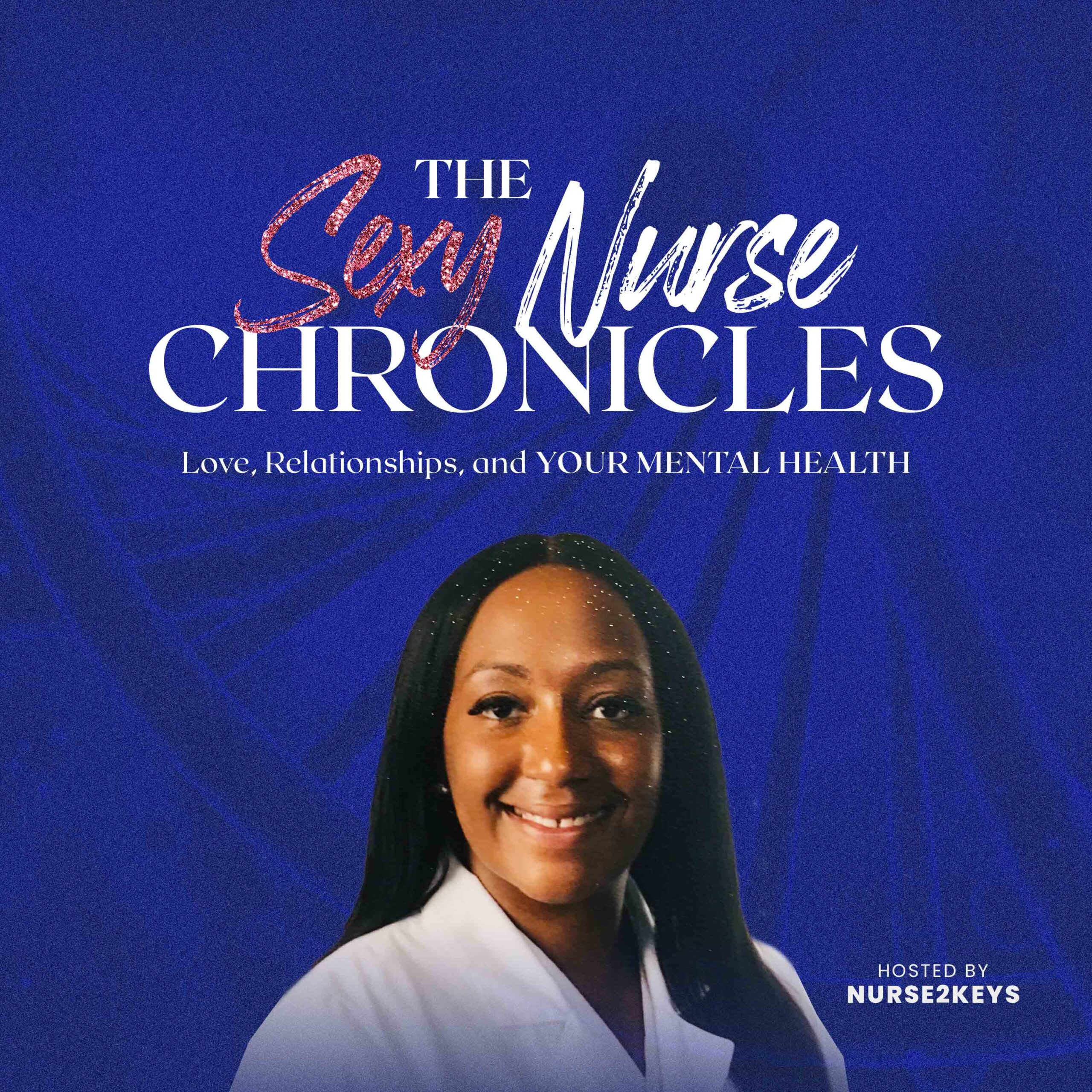Disclaimer: This episode may trigger victims of past abuse, if there is a chance that you may be triggered, I advise that you turn this episode off and come back to it when you’ve had more time to heal. If you are a victim of domestic violence thehotline.org has 24/7 resources for DV support call 1(800)799-SAFE or text the word “SAFE” to 88788
In this episode #9, we are going to further dig into traits that we hold as adults that may be a result of a narcissistic upbringing and/or childhood trauma. These are traits that may make you feel like something is wrong with you when in all actuality, you are a product of your environment. Once we can acknowledge and accept who we are, past and all, we begin the road to recovery. Let’s jump on in!
Sign #7: Do you find yourself repeatedly involved in toxic abusive relationships? Can’t find a good woman or man anywhere? Do you often fall victim to go dependent relationships?
The reason could be because you’ve attracted the same type of relationships that you grew up in. Being raised by a narcissistic or toxic parent affects your partner selection, according to therapist Wendy Behary, “Being raised by narcissists can affect the partners you choose later in life. For example, some people will try to mirror the dynamic they had growing up, simply because they’re familiar with it. This could lead to a controlling or toxic relationship, especially if people find themselves constantly dating narcissists. I was merely attracted to the same type of people that I grew up with because I am an empath that was taught to save the world! In order for a narcissist to thrive, they need a narcissistic supply.
What is narcissistic supply you ask? According to psychologytoday.com, “The narcissists’ deficient self and inner resources make them dependent on other people to affirm their impaired self-esteem and fragile ego. They only validate themselves as reflected in the eyes of others. Despite their facade of confidence, boasting, and self-flattery, they crave attention, respect, and constant admiration and actually fear that they’re undesirable.
Who gives them this narcissistic supply? You!
How do they get this supply?
An interesting article in Psychology Today says that “other people are used as objects in order to provide their supply. Freud identified two main paths to fulfilling narcissistic supplies: Aggression and ingratiation which means trying to flatter someone. Eventually, he called them sadistic and submissive. To be admired and to get their supply, narcissists employ various strategies, including impression management. They ingratiate themselves using their charm, emotional intelligence, bragging, seduction, and manipulation. Receiving attention and admiration boosts their weak self and lack of self-esteem.
They manipulate and try to control what others think in order to feel better about themselves, making narcissists dependent on recognition from others. If you refuse to provide what they want and need, they resort to their secondary means: Aggression with narcissistic abuse. They go on the offensive, attack, and belittle you. By discounting you, in their eyes, their self-image is elevated. In relationships, they can become sadistic. As their abuse escalates, their partners and coworkers become passive and submissive to avoid coming under attack and to maintain the relationship. By assuming a submissive role, you establish, an unhealthy dynamic in relationships with a narcissist.
On the flip side, those who mirror their parent’s narcissistic traits in adulthood might choose a partner who’s mild-mannered or passive in an attempt to be in control themselves, Behary says.
Developing an avoidant-attachment style is another characteristic of being raised by a narcissist.
While some people will choose unhealthy partners in response to being raised by narcissists, others might steer clear of romantic relationships altogether—a hallmark of the avoidant-attachment style. This can be displayed through “attachment issues, such as avoiding connection or an inability to be vulnerable in relationships,”
#8 Do you or have you ever suffered from depression that leads to or has led to suicidal ideation, feeling like you would be better off dead since you make your abuser so angry? Or self-harming thoughts like cutting?
If you are having these thoughts, you are not alone and there is help. If these thoughts become so severe that they interfere with daily functioning and you don’t feel you have that social support to get through those hard times, you can contact the suicide prevention hotline at 1(800) 273-8255 or your primary care provider. You deserve to be here and you would be surprised how much better you’ll feel talking to someone and getting a change in perspective. Trouble doesn’t last always! I, myself, healing in motion, “we” are healing in motion so we have to take the good with the bad and just know that tomorrow is a new day to get it right!
#9 Do you feel like the abuse you’ve endured from your childhood or relationships is your fault?
While none of it was probably your fault, narcissistic parents and/or intimate partners may make you feel that way. They lack a sense of accountability. When they are wrong, they gaslight you, invalidate your feelings, try to tell you how you should feel and that your feelings are wrong, or that you’re wrong for feeling how you feel, unless you agree with them. Even though you may have stood your ground in the past, you still question yourself over years to make things make sense and you start to believe the manipulation, replaying scenarios over and over in your head.
Well, here’s the truth, nobody deserves the abuse you endured, you “were” a victim to a person with a mental disorder that they didn’t even bring on themselves. Narcissism is rooted in their traumatic childhood. As bad as we want to call BULLSHIT because a narcissist is well aware of their actions, they actually don’t lack the brain cells to see their issues. They thrive in denial and delusions to better cope with being a bad person. So, what do you do, the ball is now in your court now that you are aware of their personality disorder? You acknowledge it and accept it. It may make you feel better now that you know that you’re not going crazy and that there are ways to combat narcissism.
#10 Do you feel like you are always walking on eggshells?
You may have walked on eggshells as you grew up with your mom to keep from setting her off. Let me ask you this, as an adult do you find yourself constantly walking on eggshells at work, school, or home. The problem could be that, anybody that you meet with the same characteristics as your mom, you’ll tend to shy away from, i.e. that controlling unempathetic boss. Studies show, that people don’t leave companies, they leave horrible management and toxic work environments and cultures. You may also steer clear of a toxic spouse more than not to keep the peace. If these people bring you anxiety every time, you’re around them, you’re probably walking on eggshells. It’s time to trust that gut feeling! Your gut feeling, aka the Holy Spirit, will always alert you before trouble comes. We just have to pay attention to those red flags.
Sign #11: Do you find it hard to trust people?
This could be partly due to not being able to trust your mother. Your mother is the one who you should be able to trust to love you unconditionally. If you can’t trust your mom then who are you supposed to trust? Another reason you may have trust issues is that trust is a learned behavior.
Back in the early 1900s, there was this ego psychologist named Erik Erikson who came up with the 8 stages of psychosocial development. Each stage focuses on a problem or conflict that we face at different stages of our lives. When you face each challenge of each stage in life, you either gain psychological strength or you face the challenge and are left feeling hopeless and weak. In Erikson’s theory of development, children don’t automatically complete each stage on a predetermined schedule though each stage is broken is up into age groups. Instead, people face generalized challenges throughout life, and the ways in which they answer these challenges determine whether they develop further or stagnate at a particular stage.
Erikson’s first stage of development, or our first central conflict, is trust vs mistrust and this begins as a baby and should be accomplished by 18 months. According to Erikson, it is the most important period of your child’s life, as it shapes our view of the world as well as our overall personality. Crying is one of the most common strategies babies use to communicate with their caregivers, and it carries different meanings. Usually, babies cry to let you know that they need one of the following:
Affection: Erikson believed that an infant’s cries communicated an important message to caregivers. Such cries indicate an unmet need, and it is up to caregivers to determine how to fulfill that need.
Comfort: It is important for caregivers to provide comfort to an infant by holding them closely and securely. This provides both warmth and physical contact. Feeding, bathing, and comforting your child helps them learn to trust that their needs will be met.
Food: Erikson also believed that feeding played a pivotal role in the development of trust. By feeding an infant when the child is hungry, they learn that they can trust their need for nourishment will be met.
Every baby communicates differently, so becoming familiar with your baby’s communication style is the key to success at this stage. Noticing and responding to these signals, whether they are cries, body movements, coos, or even words, helps them learn to trust you and the world around them.
Consequences of Mistrust
Children raised by consistently unreliable, unpredictable parents who fail to meet these basic needs eventually develop an overall sense of mistrust.
Mistrust can cause children to become fearful, confused, and anxious, all of which make it difficult to form healthy relationships. This, in turn, can lead to poor social support, isolation, and loneliness.
Sign #12: Do you have a fear of doing what you want or love to do?
This was a tough one for me on the road to my healing journey because I had to constantly give myself permission to do things that I wanted to do. To this day, at times I have to verbally ask myself, Nurse 2 Keys, what do you want to do today? If you grew up in a narcissistic home you had to live up to that parent’s standard for that approval and love you needed or that was your ass, off with your head! So, in return, you sacrifice your aspirations and things you love to do to please your mom. Moreover, you find yourself attracting and accommodating toxic partners, who are unsupportive, always playa-hating, and jealous.
Recap:
If you find yourself thinking that you were abused by your mother in any way but still trying to deny how bad it was, or denying it altogether, you still suffer from the effects of narcissistic abuse and need to further research narcissistic abuse or re-listen to this series. In order to truly heal, you have to understand the extent of what you went through and the disorder so you can lay these burdens down, rewrite your story, and rewire your brain and belief system. If I can do it, so the hell can you
Be my friend on social media!!
Youtube: https://youtube.com/channel/UC1B8Au3eLOO3wLPNPGycifA
Facebook: https://www.facebook.com/Nurse2Keys
IG: https://instagram.com/nurse2keys?utm_medium=copy_link
Apple Podcast: https://podcasts.apple.com/us/podcast/the-sexy-nurse-chronicles-podcast/id1583969963
Spotify: https://open.spotify.com/show/7iPUlFZHK6pJftWVvLPCra?si=UbASzADmTqiERdkkpGtAdg
iHeart Radio: https://www.iheart.com/podcast/269-the-sexy-nurse-chronicles-87690310/
Tik Tok: https://www.tiktok.com/@nurse2keys
Anchor VM link: https://anchor.fm/nurse2keys/message
Linktree: https://linktr.ee/Nurse2Keys
SNCP Merch: https://snc-podcast-store.creator-spring.com/listing/the-sexy-nurse-chronicles-podc
Shop w/ promo code: sncp2022 for 15% off all month of June!!

